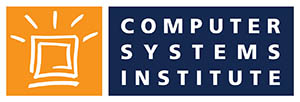The world of work may be changing in many ways, but one factor that remains steadfast is the need to pass a job interview before being hired for any position. Companies use a mix of unique questions and some standard questions, although these can take on different forms.
Read on to find the most common job interview questions you should always be prepared to hear. While the exact words used in your interview may be different, the concept of these questions is still the most common.
1. Tell us about yourself!
Let’s start with something easy, right? You may be surprised at the number of people who don’t perform well when talking about themselves or just doing a simple self-introduction. It’s easy to get flustered if you’re not used to talking about yourself.
Think about things you want to say. State your full name, your current position (if you have one), your responsibilities, and what you do daily. Be sure to include some personal information, too, like what you do in your free time, what your guiding principles are, and perhaps who has influenced you the most up to this point.
2. What interests you about this position?
It’s important to do your research before attending an interview and find out about the job you’re applying for. Some people just apply based on the title and don’t actually investigate what the job is about. Instead, learn about the position, read about the expectations, and then you can talk confidently about why you’re interested.
Talk about which aspects of the position and responsibilities are interesting to you and why. You could discuss some parts you expect may be challenging that can help you grow and develop professionally. This is good for an employer because it shows you’re serious about the role.
3. Why do you want to work in this company?
This question is quite similar to the previous one about why you want a particular position. You should know enough about the company to give specific answers on what you like and why you want to work for them. For example, you might point to their charitable work, overall company philosophy, facilities, reputation, leadership team, or more. There are many possibilities.
4. What are your greatest strengths?
For some, this question sounds easy in the same way that a self-introduction seems easy. However, when you’re feeling the pressure of an interview, this is a question that can trip you up. It’s important that you take time to think about what your true strengths are. Write them down on a piece of paper and practice saying them aloud. They should be real, measurable, and practical things. Avoid vague statements like “I can work well independently and on a team”, unless you have specific examples to support them.
5. What would you say is your greatest weakness?
This one is hard for a lot of people but remains a common question. Some think they are being smart by expressing a weakness that actually sounds more of a strength when you think about it. For example, saying, “I work so hard that I sometimes forget to eat,” or “I’m such a perfectionist, sometimes I can’t even reach my own high standards.” These answers are transparent and useless. Do not use them.
Instead, prepare a genuine weakness that you’ve experienced as a student or employee. Once you’ve revealed the weakness, go on to talk about active steps you took to improve. For instance, “I found that I’m not as good with computers as I thought, and often lagged behind classmates/colleagues. So, I took an evening class in IT, and now I find using computers much more enjoyable, but I’m still working on that.”
Showing a real weakness and how you overcame it or are overcoming it is what they really like to hear.
6. What will you bring to our team?
For this question, you again need to have practical, tangible examples of things you can do to make the position, the team, and the company work better. More vague statements like “I’m a good team player” are not helpful. Instead, talk about your personal qualities and strengths and how they will contribute to the team’s efforts.
7. What would you do differently than the previous person in this position?
Some people are tempted when hearing this question to try and flatter the interviewers by saying that everything looks great, and they wouldn’t presume to say that anything needs improvement. This is not what a good interviewer or employer wants to hear. They’re hiring new people to help make the company a better place for everyone to work. Your ideas on how they can do that are invaluable.
8. Do you have any questions for us?
Finally, the question that finishes the interview is the most common that people get wrong. So many candidates hear this question and think, “Phew! The interview is over!” It’s not. Before your interview, and while you’re researching the role and the company, be sure to write down any questions that occur to you. Then, if no natural opportunity arises during the interview for you to ask these questions, you’ll get this opportunity at the end.
Always prepare at least two questions to ask. It could be a matter of policy like “what is the company’s stance/policy on recycling?” or “how does the company approach community outreach and service?” It could equally be something more significant like, “where does the leadership hope the company will be ten years from now?” or “will there be opportunities for advancement from this role?”
We hope that our advice on interview questions helps you succeed in more of your future job interviews! If you’re ready to take the next step in training for your dream job,?contact us?today.







